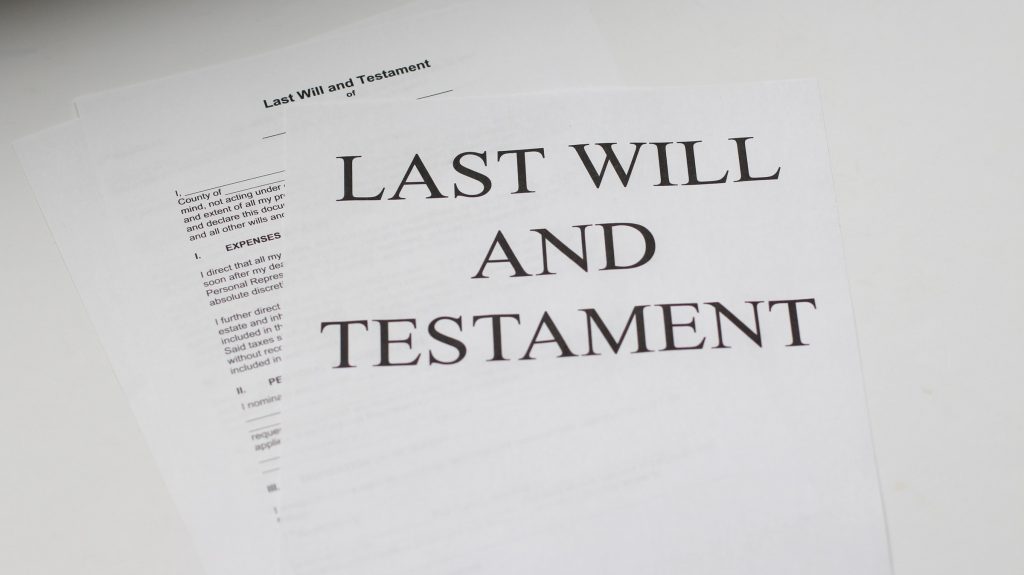
The loss of a loved one is an emotional and difficult time. Unfortunately, it can become even more overwhelming when a person’s last will and testament comes to light. If survivors feel that the allocation or assets does not reflect the deceased’s final wishes, there may be grounds for contesting a will. However, it can take a heavy emotional and financial toll. Here are a few things you should know before you spend time and money trying to challenge it.
How Do You Contest a Will?
You cannot contest a will simply because you do not like or agree with what it says. Before you can contest it, you need legal standing and be able to prove that the will is invalid. Only an heir or a named beneficiary can challenge it.
Although, anyone can review the terms if you believe there has been a mistake. Start by obtaining a copy of the document. The executor should be able to provide a copy of the current will and all previous versions that exist. Compare the documents and look for significant changes. You can check the complete list of assets to ensure nothing was overlooked as well. However, if the executor has not done due diligence, you can request a copy of the existing documents from the probate court.
If you are still suspicious after reviewing everything, discuss your situation with an attorney to see if you have a case. They will provide legal counsel and assess the validity of your claim. If you and your lawyer feel that there are enough grounds, the next step is legal action. Your attorney would file a contest against the will on your behalf. This litigation seeks to invalidate the will, but the burden of proof falls squarely on you. Depending on the specific circumstances, contesting a will can be a very long and expensive process.
When Should You Think about Contesting a Will?
The testator, or deceased person, has the right to will their inheritance based upon any belief or whim. They also have the right to change it at any point in time, for any reason. But, if you believe they changed the will under suspicious circumstances, try to clarify what happened that led to the decision.
In most instances, a contest is filed when someone is excluded from the will. Sometimes it is an heir or beneficiary who expected to be included but was not. Other times it happens if the testator discussed changes prior to their death but never officially amended the document. Either way, it is a good idea to seek professional advice before filing any paperwork.
It is no small undertaking to contest a will, so it is not a decision that you should make lightly. Of all cases presented to probate court, only about 0.5% to 3% of will contests are successful. So, you should prepare yourself for an uphill battle from the start. You must also look at the practicality of taking action from a financial standpoint as well. Does the potential gain outweigh the legal and emotional cost?
If the answer is yes, there are time-sensitive steps for contesting a will. The rules and timelines concerning a last will and testament vary state to state. These are determined based on where the testator lived at the time of death. Time frames range from a few months to a few years. So, you will need to verify local laws if you want to pursue legal action.
What Are the Grounds for Contesting a Will?
If you believe the last will and testament does not reflect the person’s true intentions, you must prove it in a court of law. However, there are certain criteria to meet before you can contest a will.
1. The will does not meet state regulations or the testator did not sign it in accordance with state laws.
Although you probably assume that documents prepared by an estate lawyer satisfy all legal formalities, it is not always the case. In fact, failure to follow state regulations is the most common way to invalidate a will. Each state sets very specific rules to determine what constitutes a valid will and testament. If the document does not meet all requirements, the courts cannot uphold it.
2. The will was signed under coercion, fraud, or diminished mental capacity.
These cases of often the most difficult to prove and endure. You must have hard evidence on your side as well. In these instances, you must prove the deceased did not have the mental faculties to understand what was happening or was unduly influenced to make changes. Since they cannot speak for themselves, courts must rely on the testimony of those present when the testator signed the will. Unless you have concrete proof, you may not have grounds to contest.
3. The terms of the will are unclear.
In order for a document to qualify as a last will and testament, it must clearly indicate the writer’s intention. If there is any shred of doubt, the probate court can invalidate it.
4. Heirs of beneficiaries disagree with asset distribution.
Lastly, an heir or beneficiary can contest a will if they disagree with the asset distribution. They may have standing if they are entitled to a larger portion of the estate or have been taken out of the will by mistake. However, be wary of no-contest clauses. Under this clause, you would inherit nothing should you challenge the will and lose.
What are the Alternatives to Contesting a Will?
Before taking any legal action, you may want to look for other avenues to pursue, especially if your case is difficult to prove. Mediation may be a better alternative than an expensive and drawn-out court battle. You are more likely to find a satisfying resolution and avoid the legal fees of prolonged litigation as well.
There may be other options as well that allow you to completely bypass a will contest. Depending on the claim on the estate, there may be other ways to obtain it. For instance, you may be able to claim compensation for unpaid work.
However, if you have no legal grounds to contest the will, it may be better to walk away. The bitterest estate fights often cost more in legal fees than the entire value of the inheritance. If the estimated amount is too low to cover the retainer, don’t spend precious time and energy to fight a losing battle.
Read More
- How Long Does It Take to Get Lawsuit Money?
- Top 4 Life Insurance Questions Answered
- Build Wealth with Real Estate

Jenny Smedra is an avid world traveler, ESL teacher, former archaeologist, and freelance writer. Choosing a life abroad had strengthened her commitment to finding ways to bring people together across language and cultural barriers. While most of her time is dedicated to either working with children, she also enjoys good friends, good food, and new adventures.
